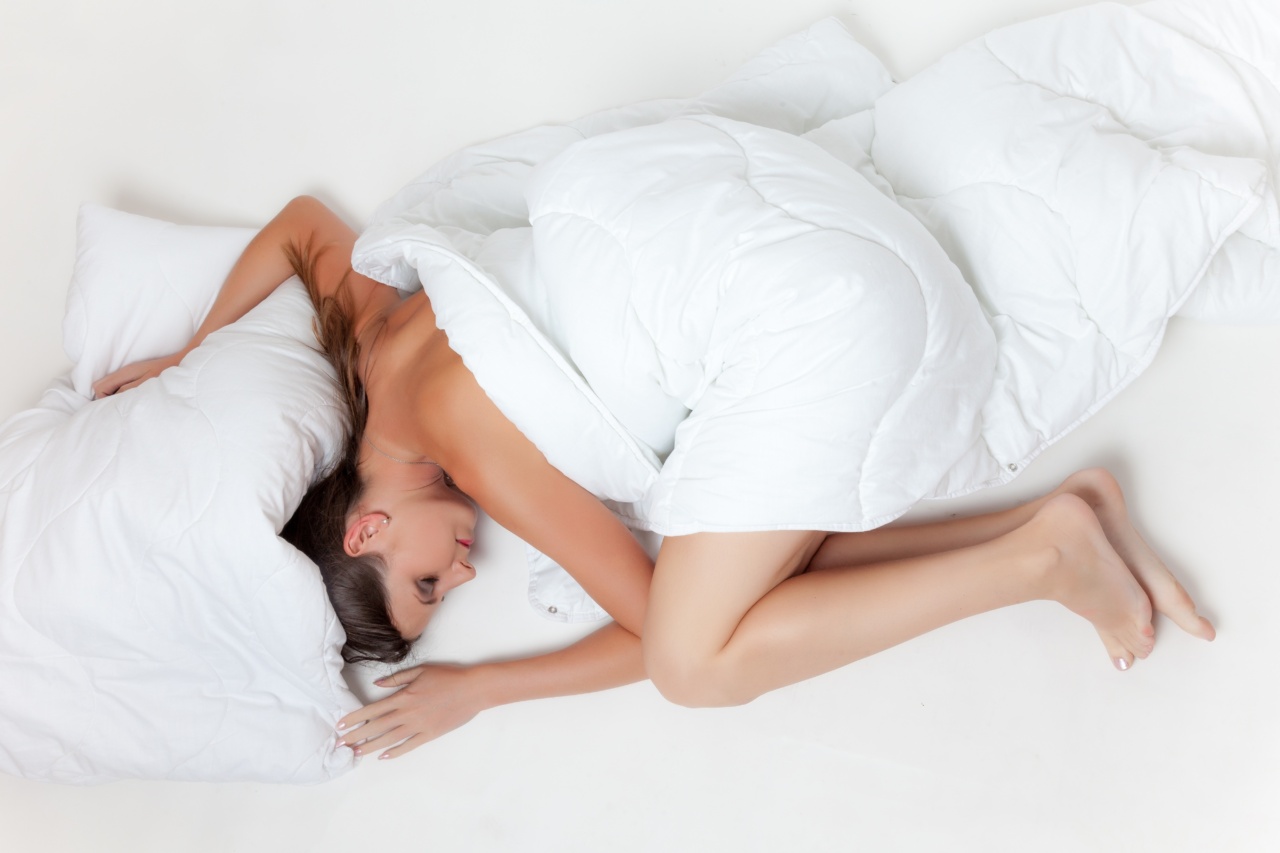Sleep is one of the most important aspects of our daily life. We spend almost one-third of our lives sleeping, and yet most of us don’t give this vital activity enough attention.
When it comes to sleeping, one question that often pops up is whether one should sleep naked or not. Many people are skeptical about sleeping without clothes, while others swear by it. In this article, we’ll explore the benefits and drawbacks of sleeping naked and look at how it can be a crucial factor in your health and well-being.
The Benefits of Sleeping Naked
1. Better Sleep Quality
When we sleep in clothes, it can lead to discomfort, sweating, and even skin irritation. This can disrupt our sleep, resulting in daytime drowsiness, and decreased productivity.
On the other hand, when we sleep naked, we can regulate our body temperature better, allowing for a comfortable sleep without any interruption.
2. Improves Circulation
Tight-fitting clothes can restrict the flow of blood and can cause nerve compression. Sleeping naked, on the other hand, frees us from the constriction of our clothes, allowing our blood to circulate freely.
This improved circulation can help with healing, cell regeneration, and better overall tissue health.
3. Reduces Stress
Sleeping naked can also reduce the levels of cortisol in our body. Cortisol is a hormone that plays a crucial role in regulating stress.
By reducing cortisol levels, we can lower our stress and anxiety levels, allowing us to feel calm and relaxed, and get better sleep.
4. Boosts Immune System
Believe it or not, sleeping naked can also help boost our immune system. When we sleep in clothes, the warmth and humidity created by our body can become a breeding ground for bacteria and fungi, leading to all kinds of skin infections.
On the other hand, sleeping naked can help to regulate our temperature, prevent infections, and reduce inflammation, allowing our body to heal itself better.
5. Improves Self-Esteem and Relationships
When we sleep naked, we feel more comfortable and relaxed in our skin. This can help to improve our self-esteem and boost our confidence.
It can also lead to a better relationship with our partner, as skin-to-skin contact releases oxytocin, a hormone that promotes bonding and intimacy.
Drawbacks of Sleeping Naked
1. Risk of Infection
Sleeping naked can increase the risk of infections, especially in communal sleeping areas like dormitories and hostels.
Microbes and bacteria can spread quickly in these environments, making it important to take extra precautions like using a clean sheet or blanket.
2. Temperature Control Issues
While sleeping naked can be the best solution for people who tend to get overheated during the night, it can pose a challenge for individuals with difficulty regulating their body temperature.
In such cases, dressing in light and breathable clothes can work alternatively.
3. Social Stigma
There is still a certain amount of social stigma attached to sleeping naked, and this may make some individuals feel uncomfortable. Personal and cultural beliefs can also play a role in deciding whether to sleep naked or not.
In Conclusion
Overall, sleeping naked has many benefits that can help improve our health and well-being. Still, these need to be weighed against the drawbacks mentioned above.
Choosing to sleep naked or clothed is a personal decision that should be based on individual needs and preferences. So next time you’re in bed, you might want to consider giving it a try if you haven’t before and see what feels best for you.































